How to Make Your First Sale on ClickBank: 3 Affiliate Tips From a ClickBank Insider

See if this sounds familiar…
You’ve heard you can make money with affiliate marketing online, and you’ve been learning about it for a while. Now, after a number of weeks – or maybe even MONTHS – you still don’t really know how to start and take action!
I get it, because I’ve been there too.
Until you really get your own “feel” for affiliate marketing, it’s easy to experience analysis paralysis around every possible decision, including which niche, traffic source, software tool, offer, and affiliate network is best for your business.
And although checking out random YouTube videos, blog articles, and Reddit posts can be super valuable, it’s still a complete and total crapshoot. You can’t really know if you’re getting an honest scoop from one so-called expert to the next.
That’s why, in this post, I want to do something a little different! Let’s ditch the “theory” and the high-level, 30,000-foot view of affiliate marketing on ClickBank. Instead, I want to take a peek behind the curtain of an actual first sale on ClickBank.
My first sale.
Hopefully, this will help you cut through all the noise to discover how to make YOUR first sale on ClickBank too!
NOTE: I talk about my own affiliate marketing experience in the next few sections – to skip ahead to learning how to get your first sale, click here.
A Recap of My Affiliate Marketing Background
Before I tell you how my first sale happened, let me give you some background on me and my affiliate marketing experience.
My name is Daniel Thrasher, and I’m ClickBank’s content manager, which means I run the company blog and write most of the content you read on here. In ClickBank’s blog articles, I primarily talk to affiliates who want to grow their own business online.
Prior to ClickBank, I gained a few years of experience in the affiliate marketing space, including writing for the blog Niche Pursuits and managing content production for an affiliate marketing content agency.
As part of my day-to-day work, I did the research, wrote about affiliate marketing, and immersed myself in the field, but after years, I still had never physically done affiliate marketing on my own.
Nowadays, I regularly publish blog articles for ClickBank, one of the most respected and longest-running affiliate marketplaces on the planet. So, when I share my story here, hopefully you can see that it’s based on some real-world experience in this industry!
How I Made My First Affiliate Marketing Sale
My first ever sale on ClickBank was during the week ending July 28, 2021. (It also happens to be my first affiliate marketing sale ever.)
The product I sold was a piano course called Piano For All (still available to promote on ClickBank), and the buyer was a reader of my music blog, Improve Songwriting.
I had placed a ClickBank tracking link for this piano course at the beginning and end of each article on the site, plus in a little banner image in the sidebar. It looks like this:
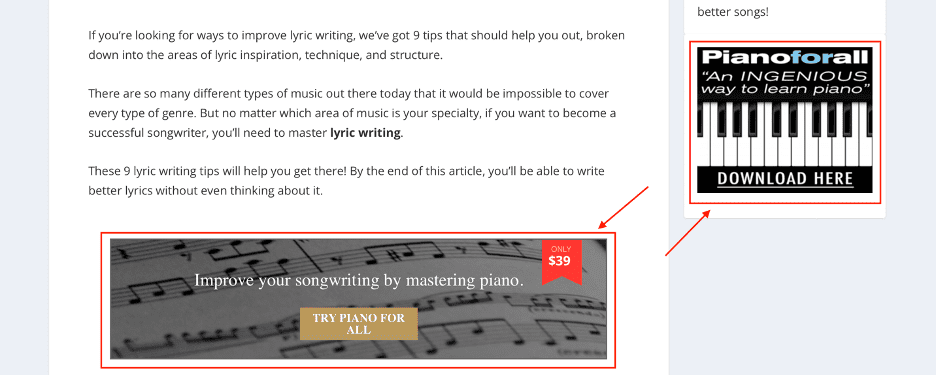
Theoretically, all it takes to get an affiliate sale is adding your tracking link somewhere online, whether it’s within a blog post, a landing page, an email, or countless other places. If someone clicks your link and then makes a purchase within 60 days, you get a commission (up to 75% on ClickBank). Pretty sweet, right?
But keep in mind, I was seeing less than a hundred visitors per day to my website at that time, and I was only getting between 5-10 hops (i.e. clicks on my tracking link) per week.
In all of that time, I got just a few order form impressions – but eventually, one of those ended up leading to my first sale.
An “Overnight” Success?
It felt like a HUGE breakthrough for me to have gotten my first affiliate marketing sale, especially as someone who’d done marketing for others throughout my whole career! Getting that ~$20 in my bank account was a special moment.
But I realized this wasn’t happenstance, and it wasn’t passive. I’d learned a TON about my chosen traffic source – SEO blogging – over my many years as a content marketer.
Here’s what I already knew how to do before I started my music blog:
Set up a WordPress website from scratchConduct keyword researchWrite quality content that addresses the search intent of target keywordsOptimize content for SEOTrack keywords and analytics
And the blog itself took a while to grow too. I launched it in August of 2019 and didn’t get my first sale until July of 2021, almost two years later. (Though to be fair, I didn’t bother trying to monetize it until about a year in.)
So, this “overnight” success was really the culmination of years of experience and effort. A lot of what I know was learned on the job, because my career happens to be in digital marketing – but it was also learned through plenty of trial and error in my spare time!
Why Did It Take So Long?
The first point I want to make is just how LONG it took me to see any kind of success!
I graduated college in 2010 and launched a freelance business writing content for some clients. As a copywriter of SEO blog posts, webpages, emails, social posts, and other digital content, I had a firsthand look at a lot of the tactics people were using to make a successful business online.
And yet, I didn’t even seriously attempt my own online business until 2019 – and my first affiliate sale wasn’t until 2021.
If I had to say why, I think it was mostly about confidence. I got more knowledgeable at the important aspects of my chosen traffic channel – including keyword research, managing a website, and writing content – by doing it for other people.
Eventually, I thought to myself, “Hey, maybe I can do this for myself.”
But it’s also because I FINALLY chose to start a specific business (Improve Songwriting) around a specific topic (the music niche) on a specific traffic channel (SEO blog) for a specific offer (Piano For All) and practiced doing that one thing well, instead of endlessly bouncing between the countless different options under the sun.
I’m convinced that’s the ONLY way you can truly learn and grow!
NOTE: The other reason it took a long time is because I had a limited budget, so I was only willing to grow an online business with free traffic methods. You can see success a LOT faster if you’ve got some money you can invest!
How to Make Your First Sale on ClickBank
So, that was my journey. And of course, it’s still just beginning, but with that first sale behind me, I feel a lot better about where I can take my business next!
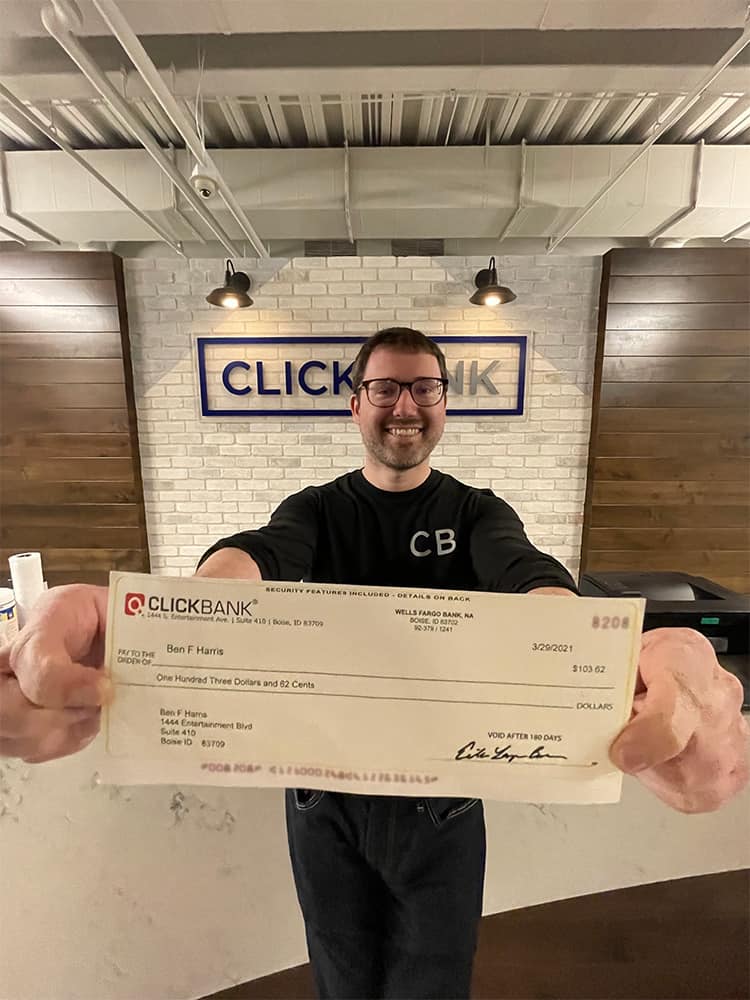
Now, let’s talk about yours.
If you’re brand-new to affiliate marketing, then you need to consider the possible paths ahead of you and pick one.
The 5 Affiliate Paths
It’s a bit of a simplification, but at ClickBank, we tend to see five main types of affiliates.
You can go down any of these paths, but for now, I recommend picking just ONE – you can always explore others later!
1) Content Publisher
As a content publisher, you’ll produce content for an SEO blog/website, podcast, or YouTube channel. All of these are organic (free) traffic channels where you’re trading your time, labor, and expertise to produce content that gets engagement.
By putting out entertaining and informative content, you’re able to attract organic readers and viewers. Once you have their attention, you can nudge them to buy a product or service and take a cut of every sale.
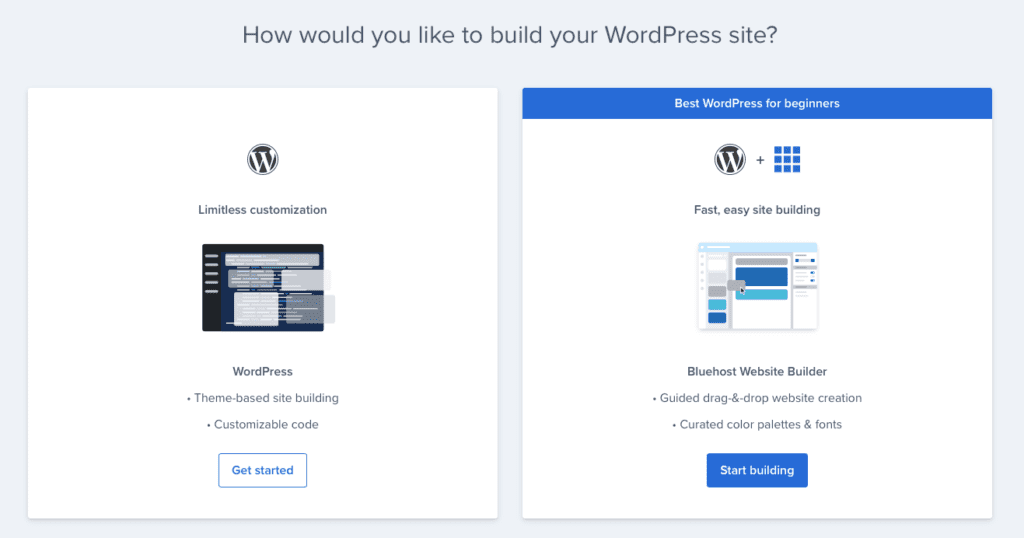
If your primary goal for monetization is affiliate marketing, then I believe the best option is to build an affiliate website that can point readers to a third-party company’s product or service in exchange for a commission, like I showed earlier with my website.
If you’re more interested in other monetization options like advertising revenue, brand sponsorships, and merchandise, then YouTube or a podcast may be the better choice.
2) Pay-per-click (PPC) Affiliate
As a PPC affiliate, you buy paid advertising on platforms like Facebook Ads, YouTube Ads, or native ads. (See our full list of paid traffic sources.)
With this approach, you target cold traffic with your ad, direct it to a presale page or affiliate bridge page, and then include your tracking link (which points to the sales page where people can make the purchase).
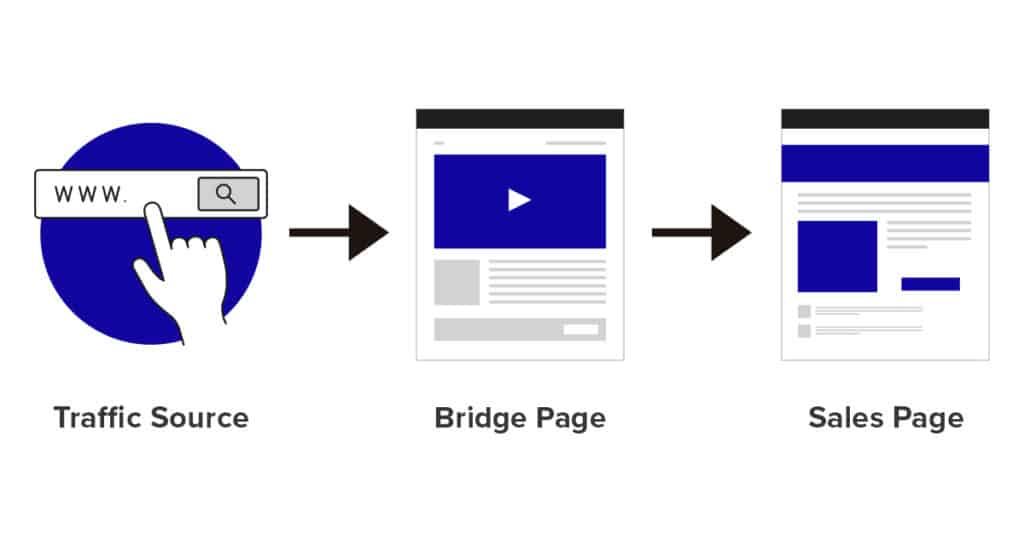
Obviously, paid ads require a budget – often in the hundreds or even thousands of dollars – but they reliably generate a LOT of traffic!
One of the biggest advantages of this route is how quickly it allows you to gather data, test, and optimize your marketing messaging and creative. You’ll be able to learn about your audience and find a winning strategy.
This is also the route to go if you want to get to your goal as quickly as possible – otherwise, you’ll have to wait a while for your content to rank or your audience to grow before the results come.
3) Email Marketer
As an email marketer, you will grow an email list around your chosen audience or topic (such as males between 18-35, or drone hobbyists, or fans of your brand).
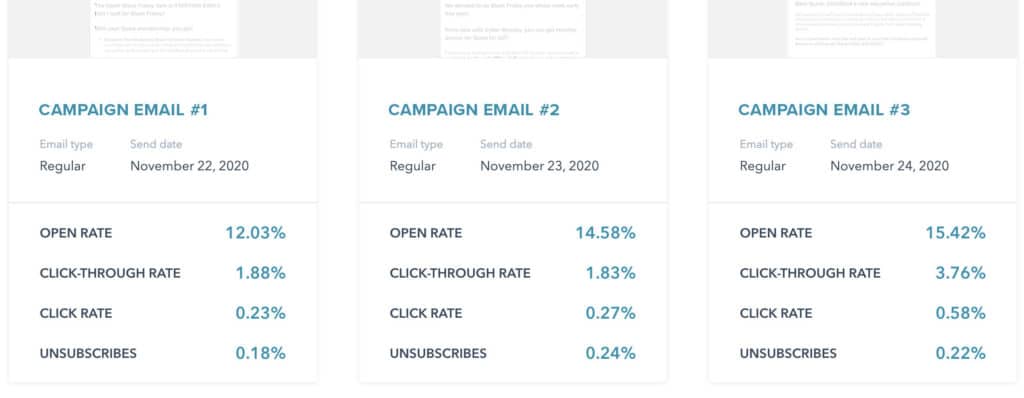
Email is one of the most effective approaches for affiliate marketing. A big advantage of email is that you own your list, so you’re not stuck with your chosen email service provider.
In fact, many digital marketers will argue that building an email list is the end goal for ANY online business owner, so don’t discount the importance of affiliate email marketing as a path to success!
4) Social Influencer
As a social influencer, your primary goal is to build an audience, and secondarily, to bring new products and services to their attention. The medium you choose to do that in is up to you!
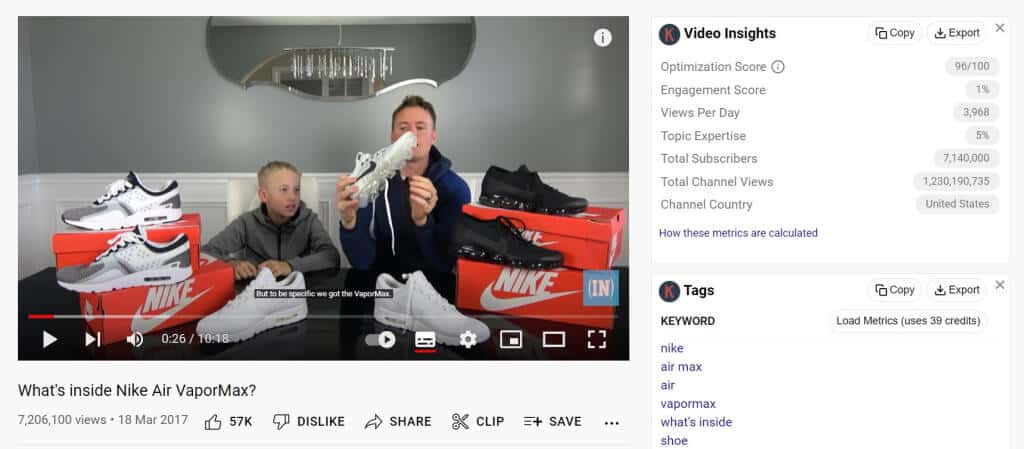
These days, the best platforms for influencers are Instagram, TikTok, Facebook, YouTube, Twitch, and Twitter – and video is a HUGE piece of most influencers’ output, including both short-form and longer video content!
There are fewer social influencers in the direct response space, because they’re often very selective about which products they’ll promote to their followers, but there’s no doubt that social media is a great way to build and monetize an audience. Learn more about influencer marketing vs affiliate marketing to decide if the influencer route aligns with your goals.
5) Community Manager
As a community manager, your job is to grow and support an online community. In the early days of the web, communities used to congregate on website forums around specific topics, but now, the most popular places to find a community are Facebook groups, subreddits, Discord servers, Slack groups, and Q&A sites like Quora.
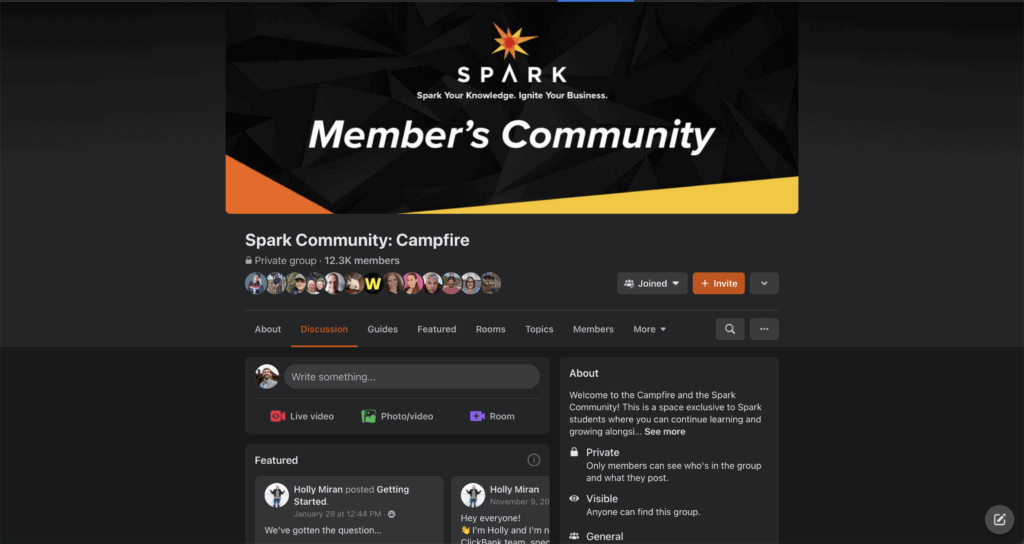
In a way, managing a community is like a hybrid of other affiliate paths. You’re getting free “organic” growth, but this usually involves creating content and being an influencer of sorts within the community you’re growing. There are more responsibilities to managing a community, including enforcing rules and ejecting toxic members.
However, one of the best things about the community approach is that communication is inherently a two-way street. You can literally talk to your ideal audience about their challenges, interests, pain points, etc. – then, when it’s time to promote an affiliate product, you know exactly what they want!
Pick a Product to Promote and Get Started
Okay, now that you know the 5 affiliate paths you can choose, pick a product in your chosen niche and go for it!
Seriously.
I always used to be afraid of making a mistake and picking the “wrong” path, or just doing a bad job, but the reality is, you can waste months or even years wondering what to do – and as a result, you do nothing.
I’d be much more afraid of never getting started.
If you want to make your first affiliate marketing sale, think about which topic you know a lot about, which type of affiliate path matches your skill set and budget, and which ClickBank products you would recommend – then block out ALL of the other options for at least 3-6 months!
NOTE: You’re unlikely to see huge success on your first try, but even so, you’ll learn infinitely more about affiliate marketing by making the attempt than by simply studying more theory.
The reality is, only you can decide what your path looks like. But don’t take too long to figure it out – pick something that seems promising and just get started!
3 Takeaways for New ClickBank Affiliate Marketers
If you’re ready to make money online, I have a few more specific takeaways that really helped me!
These should be useful for you too, whether you want to promote ClickBank products or do any kind of affiliate marketing in general.
1) Treat Affiliate Marketing as a “Cheap” Education in Business

Back in ClickBank’s 2022 Traffic Trends Report, I wrote that we’re seeing an incredible shift in commerce from brick-and-mortar retail stores tol e-commerce on the web. It’s projected that nearly 1 in 4 retail transactions will take place online by 2024.
Do you know what that means?
It means digital marketing is even more essential for businesses that want to succeed, whether they’re primarily brick-and-mortar or primarily online. These days, you’re virtually invisible without an online presence.
So, be willing to invest not just your time, but also your money into an affiliate marketing education. When you do this, you’re actually investing in yourself. Even if you never make a dime in your affiliate business directly, it’s hard to put a price tag on learning concrete strategies for growing and marketing a business in the 21st century.
I haven’t taken a business class before, so I can’t personally speak to what you’ll learn in an academic setting – but when it comes to making things happen in the real world, affiliate marketing is truly one of the best entry points into the world of business. You’ll be able to learn and make money without even having to create a product of your own.
I promise, spending $500 – or even $5000 – to practice and develop hard skills in marketing is an absolutely incredible deal. Compare that to investing $100K into an MBA. If you mentally treat the money spent on your affiliate business as “paying your tuition,” it makes it a lot easier, because you’re reframing it as an investment that will pay off later.
And it will.
2) Learn to Build a Business by Doing It

As cliché as it sounds, growing a business really is like building a plane while you fly it. (I know… a little cringey, but there’s always a kernel of truth in those old analogies!)
For example, in the realm of SEO, I will research keywords to target and make an initial content plan – but I won’t know if my assumptions are correct until I publish several pieces of content and see the search rankings and traffic those posts get. Each time I publish something new, I learn more about what works, allowing me to refine my strategy and achieve better and better results over time.
My point is, the trajectory for most businesses can’t be rigidly planned out ahead of time – the world moves too quickly for that. Instead, you just have to start moving in a direction that makes sense and be prepared to pivot as new opportunities present themselves.
Of course, if you already have a business, then it’s possible to organically discover what your next step should be. For example, a YouTuber seeing some success might decide that their next step is to start a podcast to repurpose the content they’re already creating into an audio format, while a blogger with decent traffic might decide it’s time to build an email list to capture all of their organic visitors and market to them later.
But the only way you grow is by already doing what you’re trying to do. Everything else is just wishful thinking!
3) Don’t Be Afraid to Get Outside Help

When I was just starting out, I hated the idea of spending any money on practical business education. In my mind, paying for help meant I wasn’t smart enough to figure it all out myself. It also felt like a waste of my admittedly meager funds.
What did I do instead? I went to the library and checked out relevant books for free, spent a bunch of time reading them, and usually got too overwhelmed by information overload to do anything with what I learned.
This approach was better than nothing, but it still took me a literal decade before I actually tried to build my own online business for real! Your mileage may vary, but one of my biggest regrets is that I didn’t take massive action sooner.
Repeat after me: books are great for coming up with new ideas to try in a business you’re already doing. But it’s very difficult to get an entire roadmap for affiliate marketing success from a single book!
So, what would I have done differently?
Well, I’ve seen that one of the best ways to learn something is to get personalized advice from someone who’s already done it. That means a mentor, coach, friend, class, or course – just get access to someone who knows how to do what you want to do!
If a mentor is something you’re interested in, check out my ClickBank post on finding an affiliate marketing mentor.
Or if you’re ready to invest in yourself, a great option to consider is Spark by ClickBank, our official affiliate marketing education platform! If you want to learn more about it before signing up, check out my Spark By ClickBank review.
What I Can’t Tell You About Getting Affiliate Sales
Ultimately, this post has been about my own experience finding the first taste of success in affiliate marketing, and about how you can get your first sale too!
I’ve tried to share a lot of good advice, but the one thing I can’t tell you is what YOU should do. I don’t know your skills, your interests, your financial situation, your available time, or how quickly you need to see success from your efforts.
Just know that a big part of your decision will boil down to whether you can/want to pay for results sooner using paid ads, or whether you’re willing to invest more time than money using free traffic channels like blog, email, social, or YouTube.
But no matter which path you choose, you should know that affiliate marketing is worth it. As someone who’s been in this industry for several years, I truly believe that affiliate marketing is the best way to sharpen your marketing skills, grow a side income, and build something great!
Conclusion: Creating a Business to Promote ClickBank Products
I hope this post has helped you come up with a game plan for getting your first sale on ClickBank!
I know it’s frustrating not to be told exactly what you need to do to succeed with a business promoting ClickBank products, but it’s not really something you CAN be told – it’s something you have to discover for yourself.
If you’re wondering about next steps, here’s what I recommend:
Go back and read through the 5 affiliate paths I listed before. Pick one and commit to it.Check out our ClickBank for Beginners post to get your account set up on ClickBank and learn the basics of getting started as an affiliate.Try out Spark by ClickBank to get moving in the right direction faster. (I wish I’d had something like Spark when I was first starting out.)
Other than that, I’ll just leave you with a final takeaway: patience is key when you’re getting good at anything. Every affiliate path is viable, but you won’t see results right away.
So, be willing to celebrate short-term victories, knowing that every new step you take is bringing you one step closer to the affiliate marketing success of your dreams!



